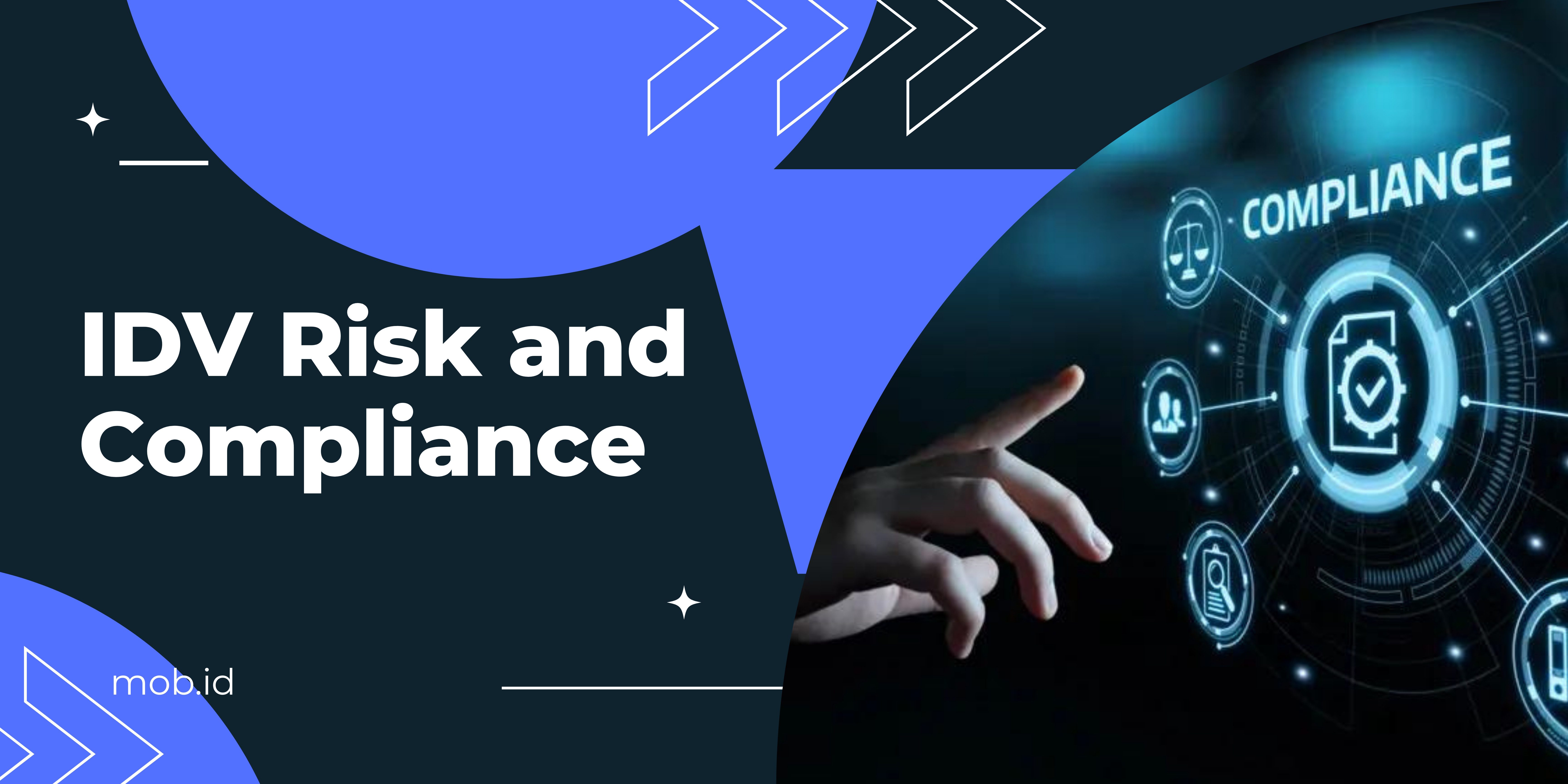What is digital identity verification?
In today’s digital world, identity verification is essential for many industries, especially fintech companies. Regulatory requirements have become more stringent with the rise of potential fraud threats. Identity proofing and authentication procedures are crucial for ensuring customer trust, mitigating risk, and complying with the law.
In this article, we’ll provide a comprehensive guide to identity verification, covering everything you need to know, from how it works to best practices for compliance.
How does an identity verification process work?
The identity verification process typically involves collecting personal data, such as name, address, and date of birth, along with verifying identity documents, like a passport or driver’s license. The user’s biometric data, such as facial recognition or fingerprint scanning, may also be captured to confirm their identity.
What does ID document verification include?
ID document verification is an essential part of identity verification. It ensures that the identity documents the user provides are legitimate and belong to the user. This process is typically performed by a digital identity verification service that compares the ID document to a database of authentic documents to verify its authenticity.

What is KYC?
KYC (Know Your Customer) is a critical process in the identity verification process for fintech companies. KYC verifies a customer’s identity, assesses risk profile, and complies with regulatory requirements.
KYC vs. KYB
KYC and KYB (Know Your Business) are similar yet distinct processes. KYC focuses on verifying the identity of an individual customer, while KYB focuses on verifying the identity of a business entity.
KYB is crucial for verifying a business entity’s identity, assessing its risk profile, and complying with regulatory requirements. This process should include rigorous verification of documents such as business registration certificates, government permits/licenses, financial statements, and other relevant documents. Additionally, it is important to ensure that all information gathered is properly stored and secure.
Why Is KYC Important?
KYC is crucial for fintech companies as it helps to mitigate risk, prevent financial crimes like money laundering, and comply with regulatory requirements. KYC ensures that the customer’s identity and activities are legitimate.
Does my company need a KYC process?
If your company operates in the financial sector or handles sensitive data, it is mandatory to have a KYC process. Here is the checklist to determine if your company needs a KYC process:
- Does your company operate in a regulated industry?
- Does your company handle sensitive data?
- Does your company provide financial services?
- Does your company have a high risk of fraud or financial crime?
A KYC process must implemented if you answered yes to any of these questions.
What are the benefits of having a KYC process?
Minimizing risk: A well-implemented KYC process can help to mitigate risk by verifying the identity of your customers and assessing their risk profile. This helps to ensure that your customers are legitimate and have appropriate permissions to use your products or services.
Maintains customer trust: Maintaining customer trust is important for fintech companies, as it enables them to provide high-quality products and services.
What are the KYC Requirements?
KYC requirements may vary depending on the industry and jurisdiction. However, the following is a checklist of typical KYC requirements:
- Collecting and verifying the customer’s identity documents;
- Collecting and verifying the customer’s data;
- Assessing the customer’s risk profile;
- Monitoring customer transactions for suspicious activities;
- Maintaining accurate and up-to-date customer records.
IDV Compliance Best Practices and Avoiding Penalties for Non-Compliance
Non-compliance with KYC regulations can result in severe penalties, fines, and reputational damage. The following is a checklist to help you avoid penalties for non-compliance:
To ensure compliance with identity verification regulations and standards, companies should consider implementing the following best practices:
- Stay up-to-date with the latest regulatory requirements;
- Implement robust data security protocols;
- Use advanced biometry and NFC document verification to confirm identity;
- Conduct regular compliance monitoring and audits;
- Maintain accurate and up-to-date customer records.
How Can You Comply With Identity Verification Requirements?
As the regulatory landscape for identity verification continues to evolve, businesses must keep up with the latest advancements in authentication procedures, identity proofing, and risk mitigation strategies. One of the most effective ways to achieve compliance is by using Identity Verification as a Service (IVaaS) solutions incorporating advanced biometry and NFC document verification.
How can NFC document verification be used for digital Identity verification and fraud prevention?
Near Field Communication (NFC) is a technology that enables two devices to communicate wirelessly when they are nearby. By leveraging NFC technology, companies can verify the authenticity of identity documents, such as passports and driver’s licenses to reduce the risk of fraud.
NFC document verification works by reading the encrypted data on the document’s chip, which contains information such as the holder’s name, date of birth, and photograph. By cross-checking this information against a secure database, companies can confirm that the document is valid and that the person presenting it is who they claim to be.
How to Verify a Customer’s Identity?
When verifying a customer’s identity, it’s essential to have a systematic approach to ensure that all necessary steps are taken. Here’s a quick checklist to help you verify a customer’s identity:
- Request a government-issued ID, such as a passport or driver’s license;
- Check the ID for any signs of tampering, such as alterations or watermarks;
- Verify the ID’s authenticity using NFC document verification technology or other authentication methods;
- Confirm the identity of the individual by cross-checking their information against reliable data sources, such as credit reports or utility bills;
- Ensure that the person presenting the ID is the same person who is listed on the ID;
- If possible, conduct an in-person or video verification to confirm the customer’s identity.
Customer’s Red Flags to Consider
During identity verification, one must be aware of potential red flags that could indicate identity fraud. Some common red flags to look out for include:
- Inconsistencies between the information on the ID and the information provided by the customer;
- Refusal to provide additional information or documentation when requested;
- Attempts to rush the verification process or provide false information;
- Inability to provide satisfactory answers to security questions or other verification methods;
- Use of suspicious or unusual email or IP addresses.
Identity Verification Regulations and Standards
There are various regulations and standards related to identity verification that companies need to comply with, depending on their industry and location. Some of the most notable ones include:
- The US Patriot Act and Bank Secrecy Act (BSA);
- The European Union’s General Data Protection Regulation (GDPR);
- The Financial Action Task Force’s (FATF) Recommendations on Anti-
- Money Laundering (AML) and Counter-Terrorist Financing (CTF);
- The Payment Card Industry Data Security Standard (PCI DSS).
Several identity verification regulations and standards must be adhered to in Europe, such as eIDAS, PSD2, and GDPR. eIDAS is a regulation that establishes trust among digital service providers, allowing for secure online transactions.
PSD2 regulates European payment services and requires banks to provide customers with secure online payment services.
GDPR requires companies to protect personal data by establishing processes such as consent management, data minimization, pseudonymization, and encryption. Additionally, businesses must ensure that their identity verification processes meet privacy requirements such as GDPR’s ‘right to be forgotten’, which allows customers to delete their data from a company’s records.
Summary
Due to potential fraud threats, identity verification has become necessary for many industries, especially fintech companies. It is essential for ensuring customer trust, mitigating risk, and complying with the law.
To ensure compliance with identity verification regulations and standards, companies should consider implementing best practices using Identity Verification as a Service (IVaaS) solutions incorporating advanced biometry and NFC document verification.



